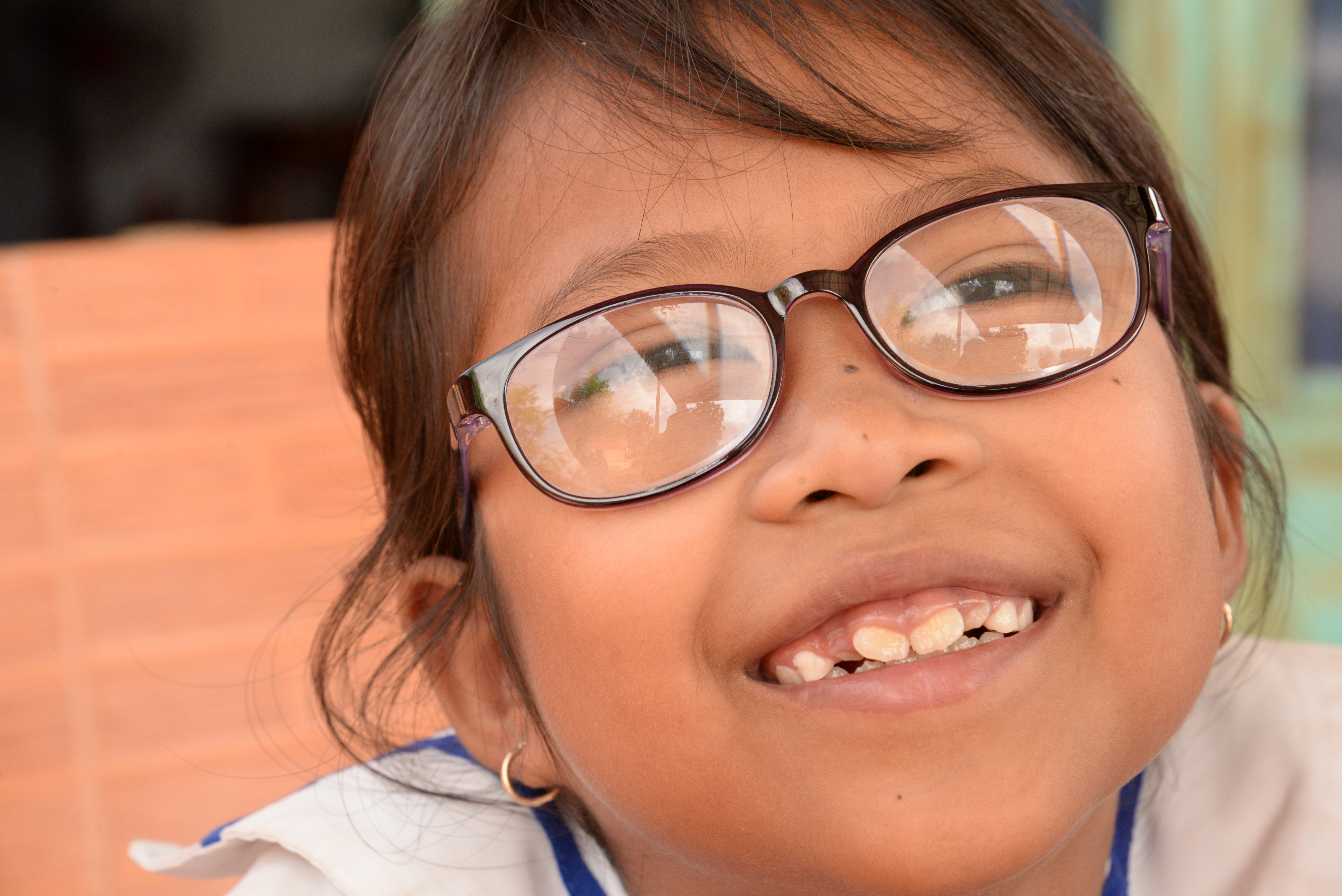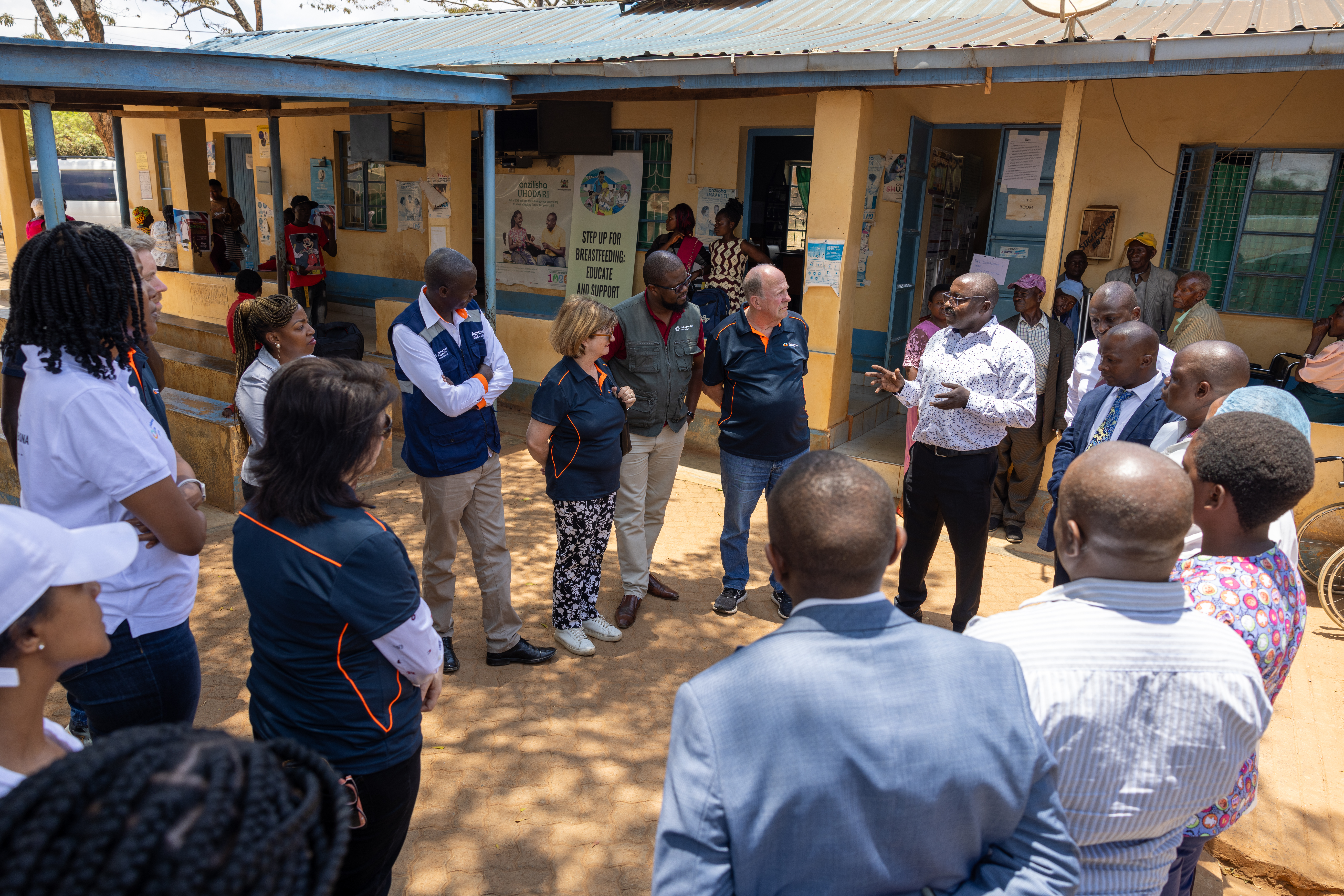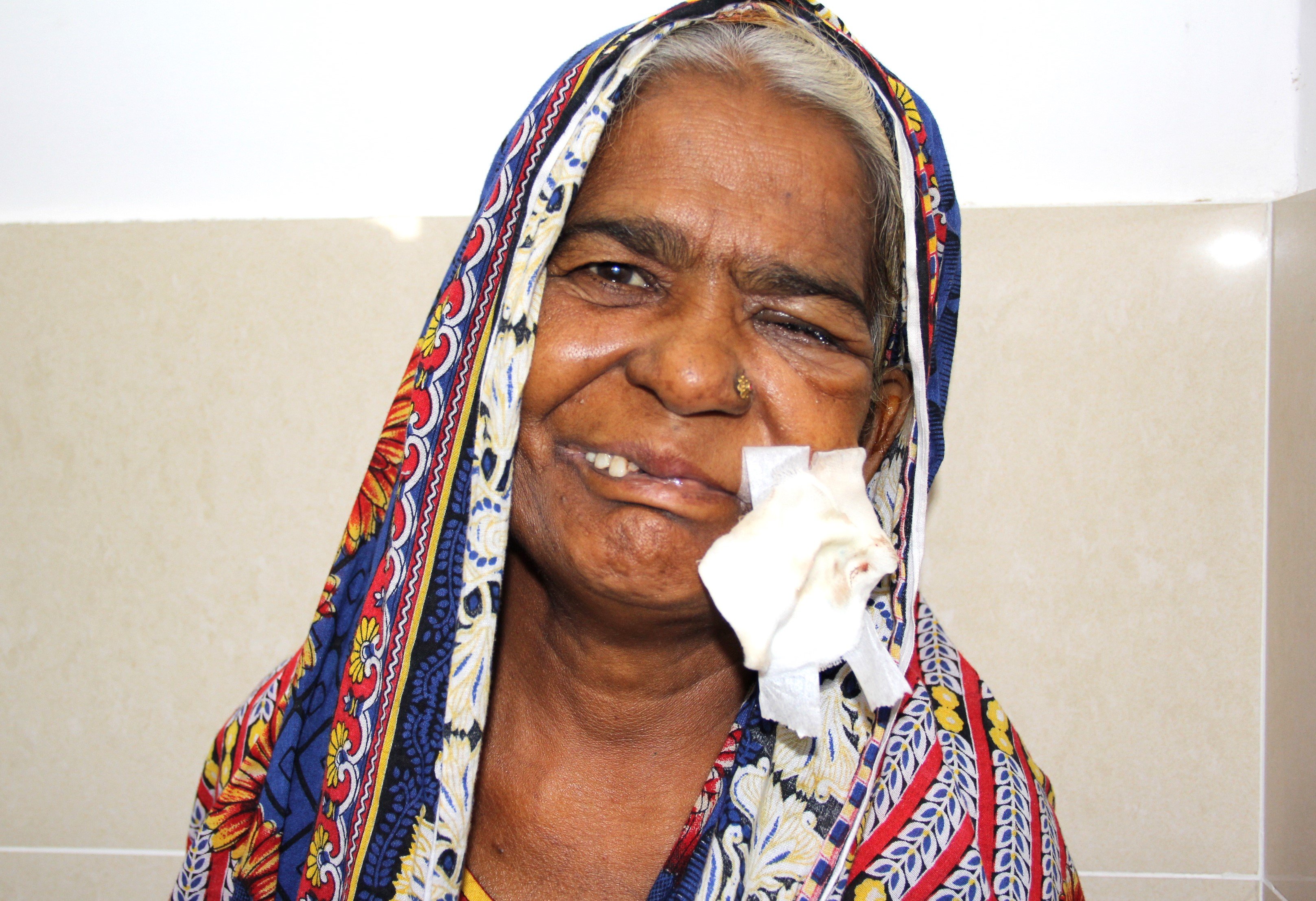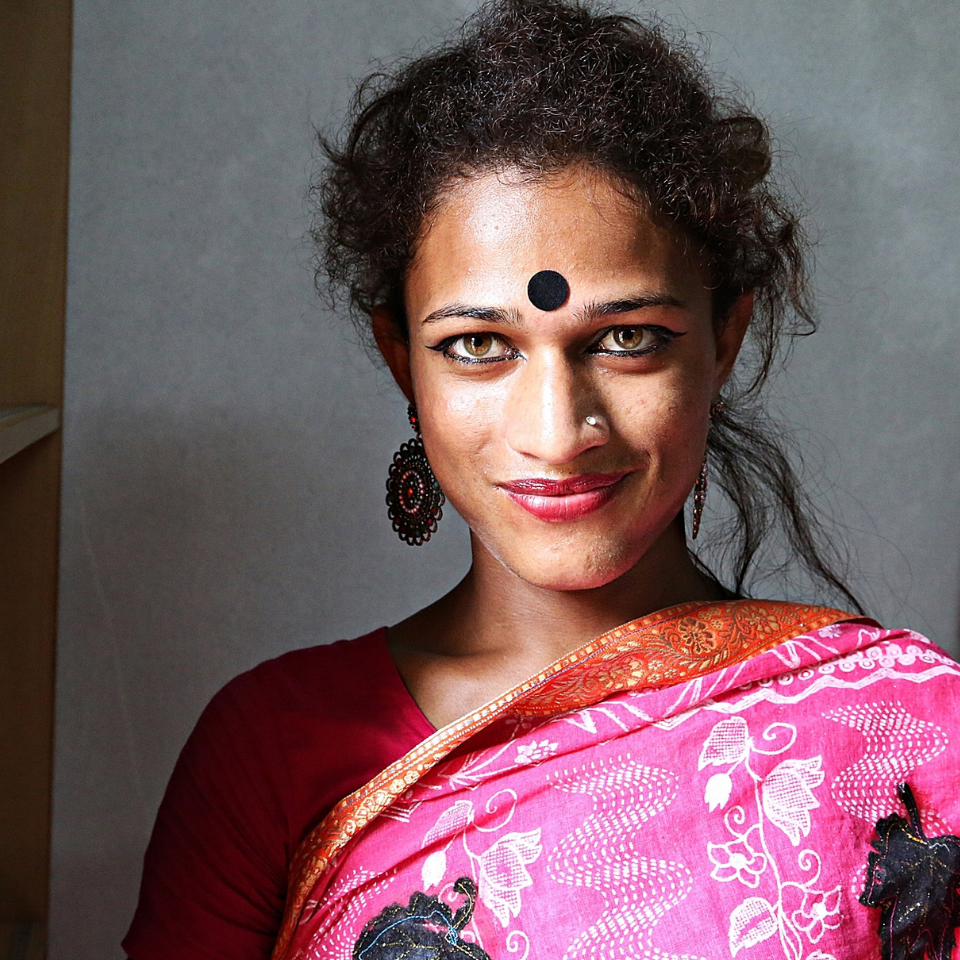Advocacy and The Foundation
Bringing about social change through activism and advocacy is a key part of Professor Fred Hollows’ legacy. He was influential in breaking down systemic barriers, and fighting for social justice.
Today, The Foundation’s advocacy agenda is vital to our sight-restoring work and our mission to end avoidable blindness. This work is done a number of ways, including through lobbying governments to commit budget to eye health, shifting public attitude through education, or amending policies and laws.
Working in partnership with like-minded organisations, we adopt a coordinated and evidence-based approach in influencing governments, international organizations and other decision makers to bring about sustainable change.
What methods do we focus on?
- Encouraging in-country government support for better resources
- Creating financial systems that ensure services are affordable and available to everyone – from cities to remote villages
- Generating local and global public support for eye health through campaigns and movement-building
- Empowering local workers to implement effective, safe and quality eye interventions
- Strengthening national health systems with a focus on eye health
How do we campaign for change?
- Work with partners to increase awareness both in-country and globally
- Build a movement of one million supporters around the world who take action on and care about eye health
- Use our research to help communicate results and create messages about avoidable blindness
- Train a workforce which will drive sustainable and improved eye health services from within affected countries
- Collaborate to be even more effective – with communities, other organizations, individuals or governments.
Our impact
Over the past five years, The Fred Hollows Foundation, in conjunction with the governments of Australia and Indonesia and a coalition of sector advocates under IAPB, has successfully advocated for World Health Assembly Resolutions on ‘Integrated People-centred Eye Care’ (2020) and new global targets on Cataract and Refractive Error (2021). This new agenda revolutionises eye health as a genuine global population health problem requiring an integrated approach across health and development, and sets the direction for the decade to 2030. The Foundation has been at the forefront of shaping this global eye health agenda, and will continue to advocate for equity in eye health for everyone.
Sustainable Development Goals
The 2030 Agenda for Sustainable Development provides a once-in-a-generation opportunity to end poverty, protect the planet and ensure prosperity for all. The work of The Foundation, and the eye health and development sectors more broadly, will impact on and be impacted by the pursuit of the Sustainable Development Goals (SDGs).
Drawing primarily on programmatic data from 2018 and some key initiatives from 2017 and 2018, we’ve produced a ‘Contribution Report’ reflecting The Foundation’s pledge to better understand its role within the SDGs, and to lead by example through publicly committing to further strengthening our engagement.
It describes our core contribution to specific SDG targets across The Foundation, illustrates how we are impacting the lives of real people on the ground, and provides public accountability for stepping up action in the coming years.
The following explores some of the themes found in that report - but if you’d like to take a deep-dive, download the full Contribution Report here (and the accessible version here).
In country impact
This is some of the recent impact we’ve had through advocacy in some of the countries where we work:
In Australia, working with other members of Vision 2020 Australia, The Foundation secured formal endorsement of Strong Eyes’ Strong Communities: a five year plan for Aboriginal and Torres Strait Islander eye health and vision by the Minister for Indigenous Health. This plan, developed by Vision 2020 members including The Foundation, charts a course to Close the Gap for vision and create a world-class system of eye health for Aboriginal and Torres Strait Islander Peoples. We also successfully advocated for substantial changes to the Cataract Clinical Care Standards, to be published by the Australian Commission on Safety and Quality in Health Care in 2020.
In Bangladesh, thanks to our advocacy efforts, the garment industry’s two apex bodies are now working collaboratively with us to expand the provision of eye care services for factory workers. Factory owners and hospital management are supporting the cost of medical staff. In partnership with factory management, we have also implemented a cost-sharing model for glasses to be distributed to workers, which has been replicated in all the partner factories.
In Cambodia, The Foundation worked with the National Program for Eye Health to advocate for better distribution of the eye health workforce, resulting in an additional 13 ophthalmologists employed to work for government and NGO hospitals in 2019. We also secured eye health as an objective in the new Gender Strategic Plan for 2019-2023 by the Ministry of Women’s Affairs.
In China long-term advocacy efforts and a successful pilot across seven provinces led to the National Preventable Blindness Committee agreeing to jointly publish The Foundation’s School Eye Health curriculum for nationwide use. This recognises our contribution to tackling myopia among children and adolescents in
China.

In Ethiopia our advocacy efforts with the Oromia Regional Health Bureau secured the establishment of a Regional Committee for Prevention of Blindness. This committee will oversee the regional eye health agenda, coordinate different eye health stakeholders and play an advisory role to the Ministry of Health and Oromia Regional Health Bureau.
In Kenya, The Foundation and other NGOs successfully advocated to the Ministry of Health to undertake an update of eye health drugs included in the Kenya Essential Medicines List, in order to address several gaps in the list. We worked with the National Health Insurance scheme to enrol vulnerable communities in insurance, to increase their access to cataract surgeries.

In Lao PDR through our partnership with the Lao Women’s Union, we integrated eye care into the Union’s outreach and member programs, including eye screening and surgery programs for women.
In Myanmar The Foundation’s advocacy for human resource development led to the expansion of project work in two additional regions, Magway and Ayarwaddy. For the first time, we were able to secure a reference to eye health in the draft version of the upcoming National Health Policy.
In Pakistan our advocacy efforts with a local health department, hospital management and parliament member resulted in an eye surgery operation theatre at a partner hospital becoming functional again. Prior to this, the theatre in Tehsil Headquarter Hospital,getting treatment as the next closest hospital was too far away for most patients to travel. The Foundation’s advocacy was combined with public mobilisation efforts to spread the word locally about the reactivated operating theatre, ensuring more people get surgery Chichawatni, had not been performing surgeries for more than a year.

In Palestine The Foundation and its local partner successfully introduced screening for diabetic retinopathy in UN Refugee Works Agency (UNRWA) clinics throughout the West Bank and Gaza.
In the Pacific we successfully advocated with the Governments of Nauru and Papua New Guinea to secure approvals to commence trachoma programming.
In Vietnam we successfully worked with the Ministry of Health to develop District Eye Care Guidelines to improve quality and access to eye care services for people living in remote and mountainous areas. These guidelines are being piloted in a number of districts before nationwide rollout in 2020. The Foundation also collaborated with the Ministries of Education and Training and Health to integrate eye health curriculum into the School Health Program.
Our advocacy work is ongoing
We continue to seek to make eye health a priority for international donors and governments. We are leveraging our position as a respected provider of eye health services at country levels to address regulatory or legal barriers in order to improve eye care as required.
